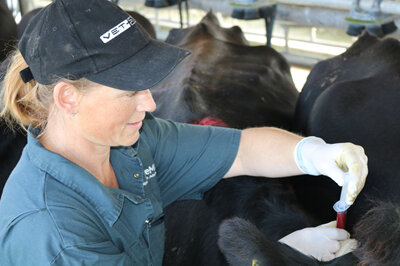
Knowing the trace mineral status of your herd before you start heat detection is important. The trace minerals are important in maintaining optimal cow health, which is essential for successful production and reproduction.
Selenium, copper, cobalt, iodine, and magnesium can all affect cow health. Milk production can result in the levels of these trace minerals declining in the blood and liver, especially if supplementation is not effective.
What do trace minerals do?
These minerals are all required for optimal reproductive tract function, metabolism and immunity. Cows deficient in selenium are at increased risk of mastitis and retained placenta, copper is part of many systems involved in blood cell formation, hair and hoof health, iodine is essential for general metabolism, cobalt ensures energy in the diet is fully utilized and appetite is maintained, and magnesium is required for nerve function and preventing milk fever.
Low levels can reduce cyclicity in cows
Getting the trace mineral status correct, before you start heat detection, is important because more cycling cow’s means fewer non-cycling cows you will have to deal with. Having the correct mineral status and supplementation process will ensure you optimise the chances of getting better submission rates, conception rates, and ultimately pregnancy rate. With shorter mating periods this becomes very important.
We often see cows with low to marginal trace mineral status as mating approaches. Even though levels may have been good at dry off and through winter, milk production and diet can both lead to rapidly declining levels.
Testing
We strongly encourage you to test your herd before you start heat detection. A representative group of cows, young and old that have been on the dairy platform for at least a month will give a representative indication of mineral levels.
Testing involves getting a blood sample and, in some cases, liver may be sampled as well to give a more accurate reading of copper levels. Liver biopsy is quick and very safe.
In most cases 7-10 samples are adequate.
Results and recommendations from your VetEnt vet
Following testing your vet will discuss the results with you, any changes to supplementation that may be required, and the best way to maintain adequate levels for the remainder of the lactation.
Please discuss testing with your vet, or give your local VetEnt clinic a call.